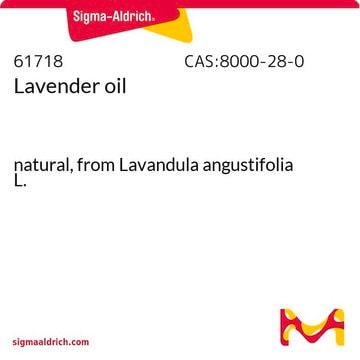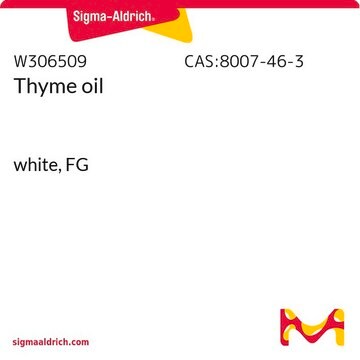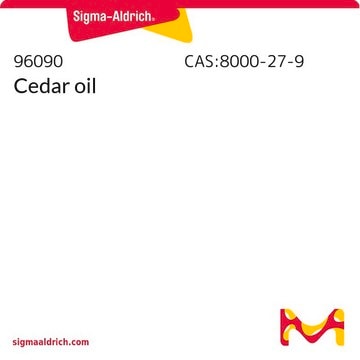77411
Peppermint oil
natural, from Mentha piperita L.
Synonyme(s) :
Mentha piperita
About This Item
Produits recommandés
Source biologique
Mentha piperita L.
Niveau de qualité
Forme
oil
Qualité
natural
Indice de réfraction
n20/D 1.46
n20/D 1.461 (lit.)
Point d'ébullition
215 °C (lit.)
Densité
0.898 g/mL at 25 °C (lit.)
Température de stockage
2-8°C
Vous recherchez des produits similaires ? Visite Guide de comparaison des produits
Autres remarques
Subscribe to our Newsletter to keep up to date on our latest Flavors and Fragrances offerings.
Mention d'avertissement
Warning
Mentions de danger
Conseils de prudence
Classification des risques
Aquatic Chronic 2 - Skin Irrit. 2 - Skin Sens. 1
Code de la classe de stockage
10 - Combustible liquids
Classe de danger pour l'eau (WGK)
WGK 1
Point d'éclair (°F)
150.8 °F - closed cup
Point d'éclair (°C)
66 °C - closed cup
Équipement de protection individuelle
Eyeshields, Gloves, type ABEK (EN14387) respirator filter
Faites votre choix parmi les versions les plus récentes :
Déjà en possession de ce produit ?
Retrouvez la documentation relative aux produits que vous avez récemment achetés dans la Bibliothèque de documents.
Notre équipe de scientifiques dispose d'une expérience dans tous les secteurs de la recherche, notamment en sciences de la vie, science des matériaux, synthèse chimique, chromatographie, analyse et dans de nombreux autres domaines..
Contacter notre Service technique







